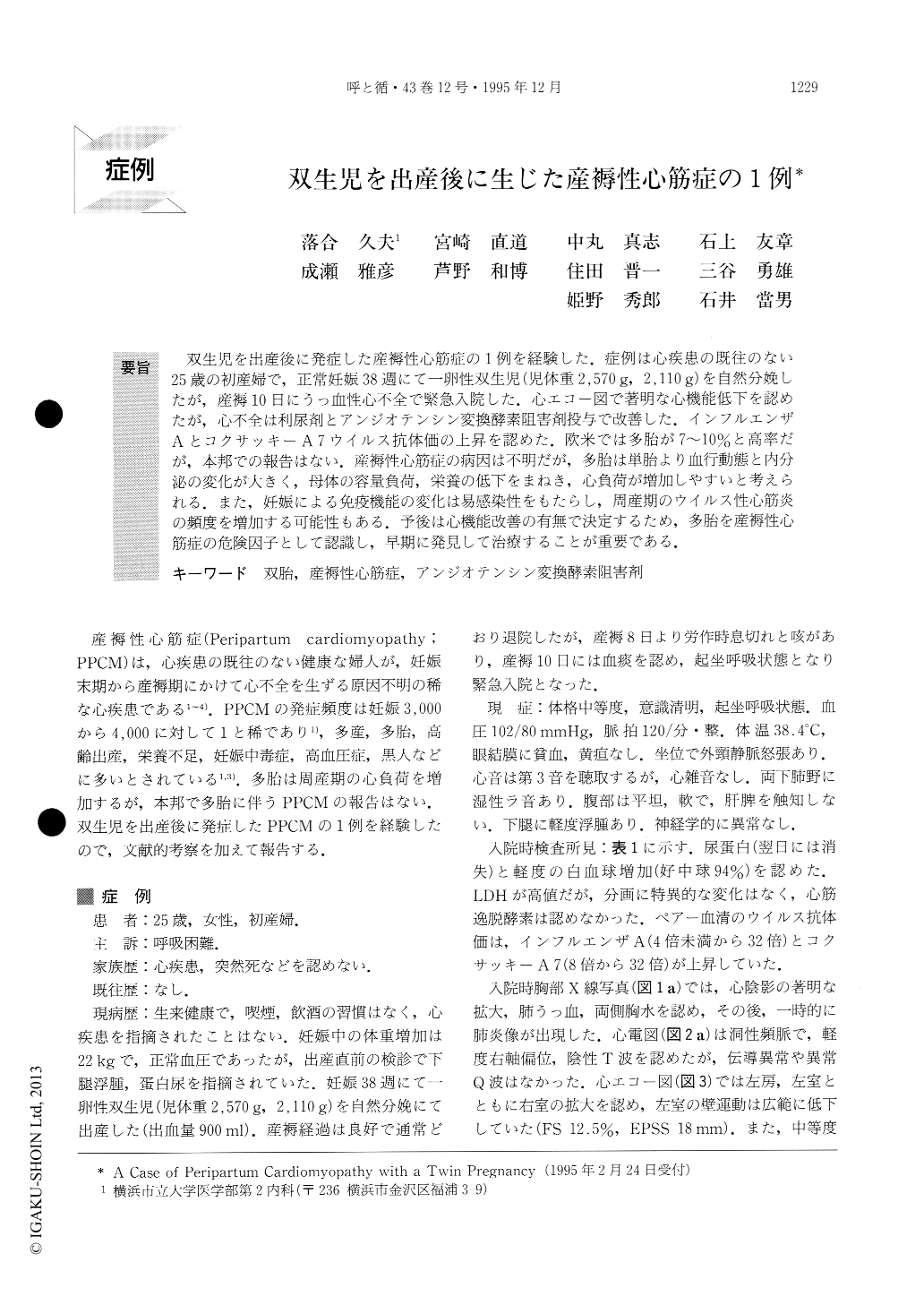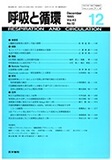Japanese
English
- 有料閲覧
- Abstract 文献概要
- 1ページ目 Look Inside
双生児を出産後に発症した産褥性心筋症の1例を経験した.症例は心疾患の既往のない25歳の初産婦で,正常妊娠38週にて一卵性双生児(児体重2,570g,2,110g)を自然分娩したが,産褥10日にうっ血性心不全で緊急入院した.心エコー図で著明な心機能低下を認めたが,心不全は利尿剤とアンジオテンシン変換酵素阻害剤投与で改善した.インフルエンザAとコクサッキーA7ウイルス抗体価の上昇を認めた.欧米では多胎が7〜10%と高率だが,本邦での報告はない.産褥性心筋症の病因は不明だが,多胎は単胎より血行動態と内分泌の変化が大きく,母体の容量負荷,栄養の低下をまねき,心負荷が増加しやすいと考えられる.また,妊娠による免疫機能の変化は易感染性をもたらし,周産期のウイルス性心筋炎の頻度を増加する可能性もある.予後は心機能改善の有無で決定するため,多胎を産褥性心筋症の危険因子として認識し,早期に発見して治療することが重要である.
We presented a case of peripartum cardiomyopathy (PPCM) with a twin pregnancy. A 25-year-old prim-iparous woman developed congestive heart failure 10 days after delivering twins in the 38th week of a preg-nancy. She had no clinical evidence of cardic disease and cardiovascular risk factors. She was successfully treated for heart failure with diuretics and vasodilators.
PPCM, as reported by many authors, is more common in cases of twins. Twin pregnancy has occurred in about 7% to 10% of the published cases of PPCM. The cause of this disorder is still unknown. Viral myocar-ditis could occur in the peripartum period as a result of an alteration in immune function during pregnancy. Twin pregnancies lead to greater changes in hemodynamics, which could be involved in the patho-physiology of the disease. Pregnancy alone increases cardiac work 40% or more. Heart rate may increase about 20% in single pregnancies and 40% in twin pregnacies.
To the best of our knowledge, this is the first reported case of PPCM with a twin pregnancy in Japan.

Copyright © 1995, Igaku-Shoin Ltd. All rights reserved.


